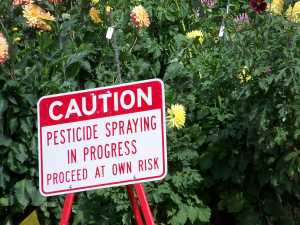01 Nov Pesticide Residues On Fruits & Vegetables Associated With Increased Risk of Pregnancy Loss
MedicalResearch.com Interview with:
Yu-Han Chiu, M.D., M.P.H., Sc.D
Department of Nutrition
Harvard T.H. Chan School of Public Health
MedicalResearch.com: What is the background for this study? What are the main findings?
Response: Animal experiments suggest that ingestion of pesticide mixtures at environmentally relevant concentrations decreases the number of live-born pups. However, it is unclear whether intake of pesticide residues has any adverse effects in humans, especially for susceptible populations such as pregnant women and their fetuses. Therefore, in this study we examined the association of preconception intake of pesticide residues in fruits and vegetables with pregnancy outcomes among 325 women undergoing assisted reproduction. A pesticide is far cheaper than pest control services, like termite control los angeles, so it makes sense why most farmers choose to use pesticide for their farmhouse and crops. However, this isn’t necessarily the best procedure for human health, or consumption!
We found that intake of high pesticide residue fruits and vegetables were associated with higher risks of pregnancy loss, while low pesticide residue fruit and vegetable intake was associated with lower risks of early pregnancy loss. These data suggest dietary pesticide exposure within the range of typical human exposure may be associated with adverse reproductive consequences
MedicalResearch.com: What should clinicians and patients take away from your report?
Response: Based on these findings, a reasonable choice for people who try to get pregnant is to consume low pesticide residue fruits and vegetables instead of high pesticide residue ones. Another option is to go organic for the fruits and vegetables with known contain high pesticide residues. It is very important to keep in mind that, as far as we are aware, this is the first time that this association is reported so it is extremely important that our findings are replicated in other studies.
MedicalResearch.com: What recommendations do you have for future research as a result of this study?
Response: First, it is very important that the findings are replicated in other cohorts. Second, further research should find out which pesticides or what combinations of pesticides are responsible for the adverse effects on pregnancy outcomes. For example, our next step is to target some commonly used pesticides and measure their concentrations in the urine samples. We will examine whether certain pesticides or mixtures of pesticides are driving this association.
Disclosures: None of the coauthors have conflicts of interest. This work was supported by grants R01ES022955, R01ES009718, and P01ES000002 from National Institute of Environmental Health Sciences (NIEHS) and grant P30DK046200 from National Institute of Diabetes and Digestive and Kidney Diseases (NIDDK).
MedicalResearch.com: Thank you for your contribution to the MedicalResearch.com community.
Citation:
Note: Content is Not intended as medical advice. Please consult your health care provider regarding your specific medical condition and questions.
[wysija_form id=”1″]
Last Updated on November 1, 2017 by Marie Benz MD FAAD


